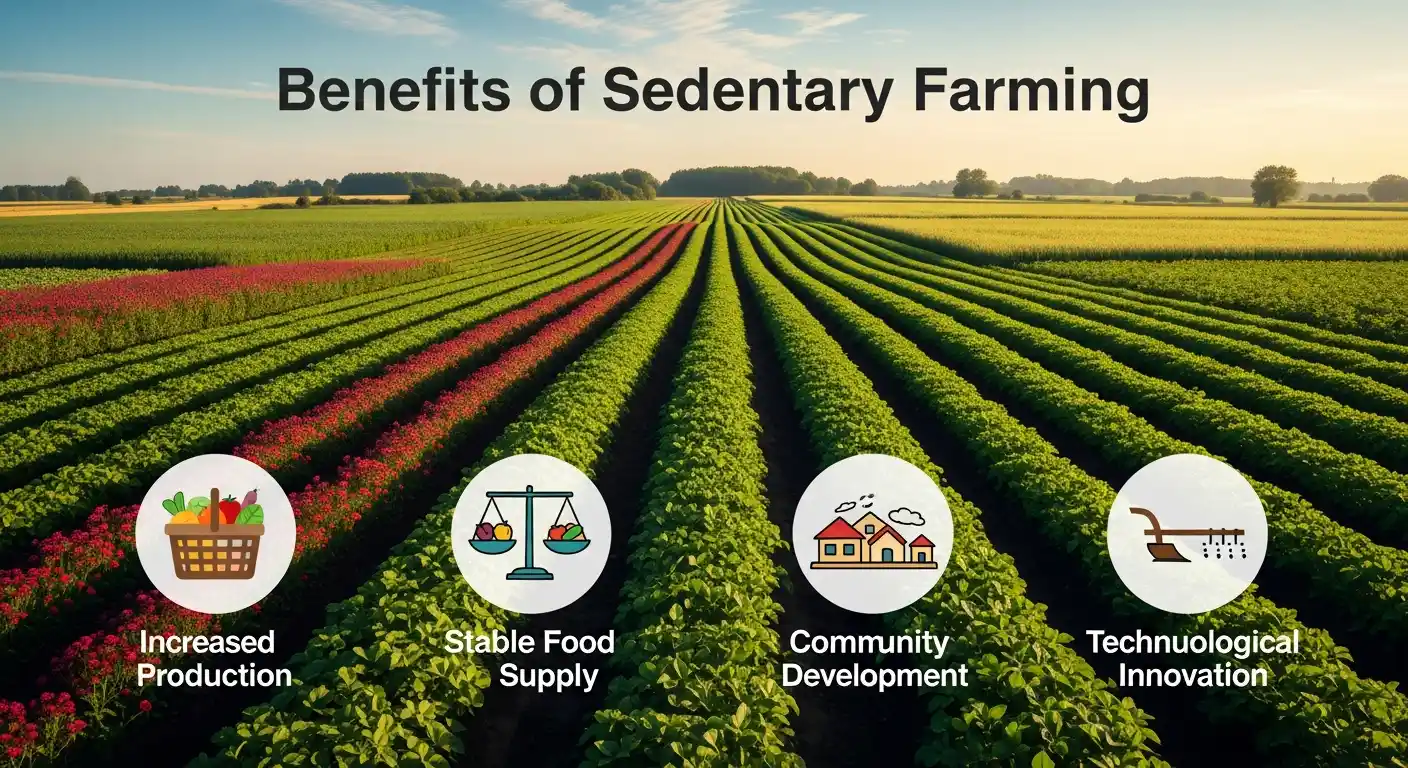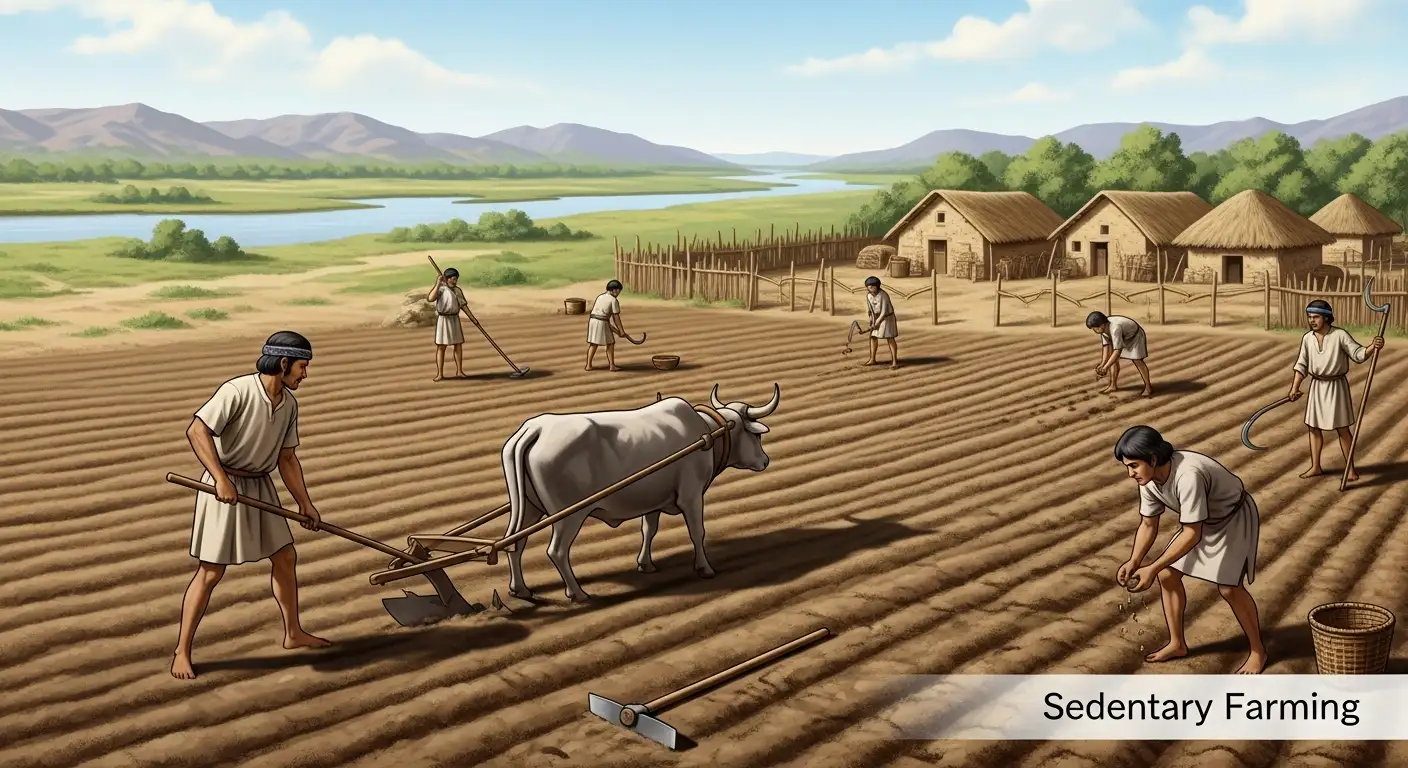Sedentary Farming Meaning
Let’s discuss about Sedentary Farming and Farmers. There are two kinds of people in this world, those who love to travel and those who would rather stay in a stable space throughout their lives. Of course there are pros and cons in both the situations, but talking about the stable kind, we have our sedentary farmers to look at.
What is Sedentary farming?
To know more about sedentary farming we first need to understand who are sedentary farmers and why are they called that.
The word sedentary means being stable for a long time, not moving or travelling around rather staying in a single place.
The term comes from the Latin word sedere, meaning “to sit.”
Unlike nomadic farmers who travel around the world, in search of grasslands and diverse markets to sustain their livelihoods, sedentary farmers stay in a single place permanently and cultivate the same land by investing their time and efforts year after year rather than moving around much.
Their entire life is based on a permanent space; their houses, infrastructure, fields everything is fixed.
Also read: What is Nomadic Farming? Importance, Benefits & Challenges
Benefits of Sedentary Farming

- Permanent settlement– Farmers have an assured sense of stability and safety. This allows them to expand their investment opportunities into different sectors like infrastructure or education for their families. Since they stay in one place, they have a secure and reliable food production and financial security. Benefits of permanent infrastructure also come in handy with solid homes, barns, storage and nearby local familiar community acting as a support for trade and transport also encouraging the growth of communities and villages where people can live together as one.
- Land Management– With a single space in hand it becomes easier for the farmers to focus and put their energy, time, finances and efforts into a single investment. They can care for their lands for a longer period of time- improving soil fertility, managing irrigation and preventing erosions due to environmental changes or other factors. With a solid land management, crop diversification and successful irrigation and farming equipment can be channeled properly. Different crops could help secure food security without the risks of seasonal changes.
- Encourage technological and skill growth– Stability brings in constant growth. By staying in one place farmers gets the opportunities to learn and experiment and apply modern techniques and machinery, improving yields and efficiency over time. They learn methods for water and soil preservation for future generation and other harvesting methods like reforestation, composting etc.
Disadvantages of Sedentary Farming
- Soil Exhaustion– Continuous cultivation of the same land without adequate rest and repair can lead to depleting nutrients, leading to declining soil fertility and lower fields. Same crop cultivation can attract pests and diseases making management difficult without chemicals. Improper use of fertilizer or over cultivation can cause soil degradation, water pollution and loss of biodiversity. Such fertilizers and pesticides can be a toll on farmer’s pockets causing financial constrains and burdens.
- Environmental dependency-Due to high irrigation prices it becomes difficult for some farmers to invest in farming equipment and irrigation systems thus they depend on rainfall for irrigation but in areas with poor rainfall or limited water sources, may affect production during dry seasons.
- Land Issues– Apart from financial constraints and pressures, soil exhaustion and poor production there are other factors affecting management. Over time land may get divided among family members through hereditary or dispute factors thus affecting the size of the land- reducing it to compromising land size and making it difficult for management.
Solution to the Issues of Sedentary Farming
- Soil Management– Farming in different ways like contour ploughing terracing, etc. prevent soil erosion and Planting different crops and diversifying among it each season could help restore soil nutrient, control pest and reduce dependency. Using organic natural fertilizers like cow dung, manure, and vermin-composting help maintain soil nature and prevent degradation. Rainwater harvesting, Drip irrigation or sprinkler systems help preserve water and ensure moisture even in dry seasons.
- Community and government cooperation– Access to subsidies, crop insurance and training programs and loans can help farmers to adopt better practices and build resilience. Government access to modern techniques and knowledge helps increase awareness about modern tools and farming facilities. Local support can help grow in a healthy way. Farmers working together can share resources like water, machinery, storage – helping reduce costs and increasing efficiency.

